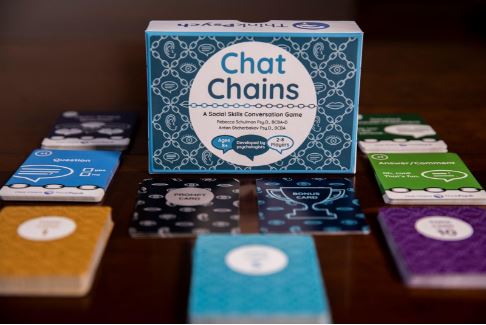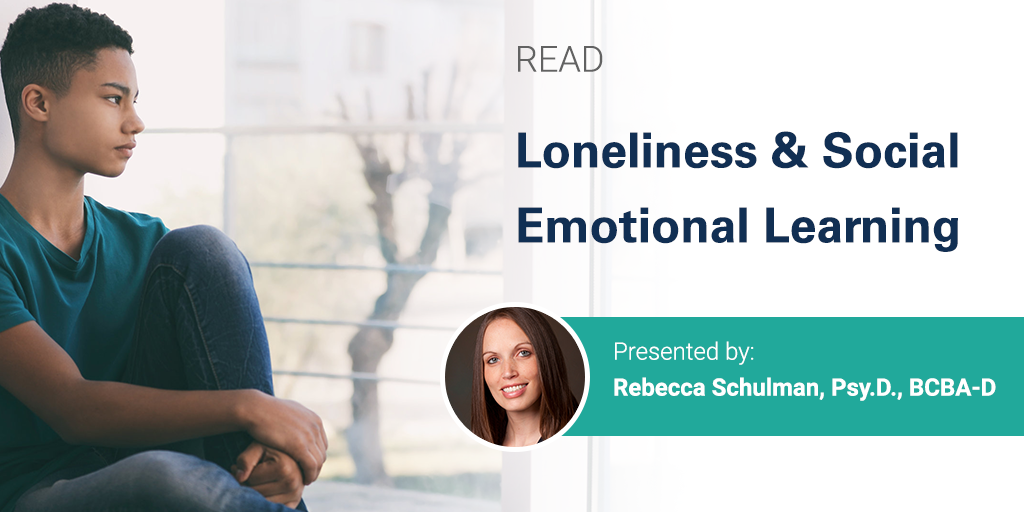Loneliness is a rapidly growing problem in our modern world. Despite being more connected via social media and the internet, more children and adults are reporting frequent loneliness every year. This is a problem because loneliness has been linked with higher risks of heart disease and stroke. It also impedes our immune system and can even influence the likelihood of recovery from chronic illnesses (Source: NPR). Additionally, loneliness can have negative effects on one’s mental health (Mushtaq, Shoib, Shah, & Mushtaq, 2014). Surprisingly, our youngest people are the most vulnerable to loneliness, with members of Generation Z and Millennials reporting significantly more loneliness than Baby Boomers. These patterns have been further exacerbated by a global pandemic and increased social isolation.
While there are no simple solutions to a problem as big and complex as loneliness, providing opportunities for social emotional learning in school, at home, and in the community offers a step in the right direction. For many young people, their social skills are significantly impacted by lack of opportunities for deep and meaningful conversations. Many conversations for young people are “bite-sized” over text messages or social media. These are often not good opportunities or venues to share deeper personal stories and struggles.
As a result, many children grow up lacking opportunities for meaningful and relationship-building conversations. Without these opportunities, many also lack the skills to do so effectively. As a licensed psychologist and board certified behavior analyst, I often see how difficult it is for kids and teenagers to “open up” about their deeper feelings. However, when they do so, it is amazing to see how much they have to say. Best practices in the field indicate that social emotional learning can significantly improve individuals’ friendship-making and peer interactions, including conversation skills, play, empathy, problem-solving, emotional regulation, etc. Key strategies include:
- Direct instruction of social skills (social emotional learning)
- Breaking down skills into individual steps
- Modeling to demonstrate the desired skill
- Role play / behavioral rehearsal of skills through planned practice
- Providing the individual with constructive feedback and behavior-specific praise
- Opportunities to generalize skills to real-world situations (e.g., extracurricular activities, play dates, games, volunteering)
In my therapeutic work, I frequently incorporate games to help children get comfortable with therapy and to begin sharing their thoughts and feelings. This may include board games, card games, and other interactive activities that are not likely to produce significant stress or frustration. There are also many games that directly teach specific social skills which can be a valuable treatment component.
I co-developed the game Chat Chains specifically to help children, adolescents, and adults develop their conversation skills. Like many things in life, we take good conversation skills for granted. In fact, they are complex and involve a variety of sub-skills such as: listening attentively, demonstrating good body language, asking & answering questions, and sharing personal information appropriately. Thus, Chat Chains was specifically designed to target these skills in a fun and play-based environment. Chat chains was developed to help players:
- Improve waiting and listening skills
- Learn new questions and answers to use in conversations
- Build confidence in social situations
- Make new friends and deepen existing relationships
- Increase effectiveness in communication
- Enhance social awareness
- Improve nonverbal behaviors in social situations
Click to learn more about Chat Chains. Please feel free to reach out to Behavior Therapy Associates if we can assist you with Social Emotional Learning. We provide consultation, professional development, assessment, and direct intervention for children through adults. We can be reached at info@BehaviorTherapyAssociates.com or by calling our office at 732-873-1212.

Mushtaq, R., Shoib, S., Shah, T., & Mushtaq, S. (2014). Relationship between loneliness, psychiatric disorders and physical health? A review on the psychological aspects of loneliness. Journal of Clinical and Diagnostic Research, 8(9), WE01-WE04, Retrieved from https://www.ncbi.nlm.nih.gov/pmc/articles/PMC4225959/.
Rebecca K. Schulman, Psy.D., BCBA-D is a licensed psychologist in New Jersey and BCBA at the doctoral level, employed at Behavior Therapy Associates in New Jersey. Dr. Schulman received her undergraduate degree with honors in Psychology and Education Studies from Brandeis University where she was a member of the Phi Beta Kappa Honor Society. Dr. Schulman earned her Psy.D. in clinical psychology from the Graduate School of Applied and Professional Psychology at Rutgers University. She completed her pre-doctoral internship at Westchester Jewish Community Services, where she completed rotations in the Developmental Disabilities Program, Treatment Center for Trauma and Abuse, Juvenile Starting Over Program, and Learning Center. Dr. Schulman has extensive experience providing individual, family, and group therapy to children, adolescents and adults. She specializes in cognitive behavioral therapy and applied behavior analysis for children through adults presenting with developmental disabilities, disruptive behaviors, sleep problems, social skills deficits, anxiety disorders, past and present childhood sexual abuse, complex trauma histories, issues related to domestic violence, and sexual problem behaviors. She also has expertise in using evidence-based treatments to work collaboratively with parents to teach them behavior management strategies and with schools to address challenging behaviors. Dr. Schulman is also skilled in conducting diagnostic evaluations, specifically of autism spectrum disorder, psychological, psychoeducational, and neuropsychological evaluations, and functional behavior assessments (FBAs). Dr. Schulman can be reached at rschulman@BehaviorTherapyAssociates.com




